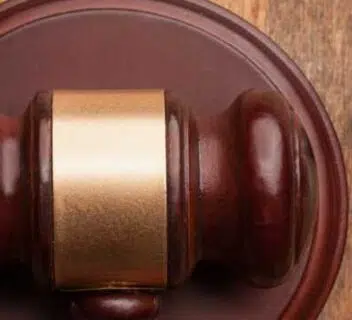Lawsuit Timelines: How Long Should A Personal Injury Case Take To Settle?
Lawsuits can be complex, nerve-wracking things. In many cases, the parties simply want to resolve the situation through a settlement, and avoid the hassle of trial litigation (and all the other court-related processes that accompany such litigation). But as the injured plaintiff, you are probably wondering: even if you are interested in settlement, how long should a personal injury case take to settle?
Let’s take a closer look.
How often do people settle out of court?
Estimates vary, but most industry observers believe that more than 95 percent of disputes are resolved through a negotiated settlement. That’s significant — and it surprises much of the general public, who have been sold the idea (through movies, books, and other media) that disputes are normally resolved through aggressive trial litigation.
Why is settlement better than trial?
Settlements are often considered to be “better” than trials because they avoid the uncertainty, cost, potential frustration, and negative publicity of trial litigation. That being said, that doesn’t mean that trial litigation should be avoided at all times. There are cases in which the only way to secure a fair outcome is to pursue the dispute all the way to trial — but these cases are not common, and in fact, the large majority of cases are settled.
To understand why most parties prefer settlement over trial, one must understand that trial entails many negatives, even if you are “sure” that you’re going to have an advantage with respect to your legal arguments. For one thing, it’s not always clear that you will win. There’s always the risk that the court will find in the other party’s favor. And even if you do win, the court might award you lower damages than you anticipated.
Beyond that, do bear in mind that the trial is public. The case can be reported on, and the details will be a matter of public record. Anyone can search it up and discuss it. As such, you might want to avoid the damage to your reputation — and certainly, many businesses prefer to avoid such damage, and will push for an early settlement (which keeps the dispute private).
How do you calculate personal injury damages?
Personal injury damages are calculated by tallying up all the relevant losses you sustained due to the defendant’s accident-related actions. These losses can be quite varied, so it’s important that you consider all the different possibilities.
Losses that could potentially count towards your damages claim include:
- Lost wages
- Loss of earning capacity
- Medical expenses
- Property loss
- Pain and suffering
- Loss of enjoyment of life
- And more
For example, suppose that you are injured in a car accident. You sustain $50,000 in medical expenses. You’re forced to take time off from work, which leads to lost wages of another $50,000. Your car is totaled, leading to a $30,000 property loss. The pain of the injury, the emotional distress you felt and feel now, and the various other lifestyle-related losses are estimated (by experts) to be equivalent to another $50,000 loss.
You could claim about $180,000 in damages, given these figures.
What is a good settlement figure?
What constitutes a “good” settlement figure will vary from case-to-case. For example, if your case involves minimal losses, the damages themselves are going to be minimal, and a “good” settlement offer might still be rather low. So bear in mind that the circumstances and context of the case have to be considered.
Ultimately, the settlement offer will change based on whether a) you can establish liability if the case were to go to trial, and b) you can secure the damages that you’re claiming if you were to win the case.
The higher the likelihood (of you proving liability, and damages), the higher the settlement offer is likely to be. It’s a rather simple calculation. Let’s use an example to clarify.
Suppose that you are injured in a car accident, and your damages claim is $50,000. The defendant concedes that your damages are, in fact, that much, and you have strong evidence to support the claimed amount. However, liability is more complex — and it seems you have a 50% chance of proving liability if the case were to go to trial. So at trial, your estimated return would be $25,000, accounting for the uncertainty. A fair settlement offer might be somewhere in the middle, then, at about $37,500.
How long should a personal injury case take to settle?
Settlement negotiations vary from case-to-case, and there is no one-size-fits-all solution. As such, there is no default expectation that you should have when it comes to resolving the dispute. Moving through the litigation process — and communicating regularly with your attorney — should give you a sense of the dynamics of your case.
So, how long should a personal injury case take to settle? It depends.
That being said, here are some factors that can influence how long it takes for your personal injury case to settle:
- The hostility of the defendant
- The defendant’s unwillingness to have the dispute be made public
- The likelihood of liability being found if the case were to go to trial
- The likelihood of the court finding that the damages claim is accurate
- The likeability of the plaintiff
- The resources of the defendant to litigate the case
- And more
For example, if a defendant is hostile, is willing to have the dispute be public, and has the financial resources to litigate the case for a lengthy period of time, then it may result in a longer timeline for a settlement (or settlement might not even be a possibility at all). By contrast, a defendant who is amicable and willing to settle the case quickly could have the dispute resolved in just a few weeks.
Contact 1-800-THE-LAW2 for a Free Legal Consultation
If you’ve been injured in an accident, then you may be wondering: how long should a personal injury case take to settle? After all, settlement is the most common way that disputes are resolved, so it’s important to know the dynamics of settlement if you’re going to understand how your dispute is likely to proceed. That being said, disputes are not always straightforward, and neither is settlement. We encourage you to work with an attorney who can guide you along throughout the process.
Contact 1-800-THE-LAW2 to connect to an experienced personal injury attorney in our legal network. The attorneys in our network offer free consultations, and there’s no obligation to continue if you decide against it, so there’s really no downside to calling in and getting started by talking about your case — at the very least, you’ll be able to get your case evaluated, so that you have an idea of how best to move forward.
We look forward to assisting you.




